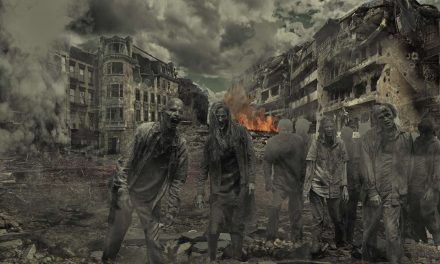A conference hosted by Journalism@Newcastle and Ethical Space, the International Journal of Communication Ethics.
23 June 2022 – Deadline for abstracts 29 October 2021
True crime has a long and popular history in journalism, literature, drama, radio, film and television – and now the podcast. A warning for fair women (1599), the anonymous dramatisation of the 1573 murder of London merchant George Sanders by his wife’s lover, was the curtain-raiser for many more playwrights to adapt true murder narratives in the decades and centuries that followed (Rohrer 2019). True crime podcasts today clock up tens of millions of downloads (Punnett 2018) and research suggests that the audience is overwhelmingly made up of women (Boling and Hull 2018). Perhaps because of this, it is often dismissed as ‘a genre of cheap paperbacks with little literary merit and highly sensational, pornographic content (Rowen 2017).
But such perspectives are challenged by research which identifies a focus on advocating for justice where the formal justice system has failed (Rowen 2017). True crime podcasts represent women in ways that ‘use the affordances of mass media to draw support from the public, effectively inviting the audience to perform as an alternate jury’ and engendering change in judicial processes (Pâquet 2020). The sub-genre of criminal biography uses the voice of the accused to challenge institutional truth-claims (Buozis 2017) and journalistic investigations repeatedly expose miscarriages of justice (Larke-Walsh 2021). Kelli Boling (2019) argues that true crime podcasts are impacting the criminal justice system in unprecedented ways and could challenge both criminal justice and media reform. But proponents also areaccused of complicity in the propagation and popularisation of narratives of female-directed violence and the visualisation of mutilated female bodies (Greer 2017). Erica Haugtvedt (2017) interrogates the range of ethical tensions which emerge when, for example, the conventions of fiction are applied to reportage, people become characters and factual narratives are developed as plots. And a focus on particular types of criminal activity address critical social issues of our day such as femicide (Mahadeen 2017); the persecution of racial (Oliver 2003) and LGBTQ+ communities (Polchin 2019); human trafficking (Gregoriou 2018) and crimes against the planet (Ruddell 2017). Case Punnett (2018) charts the theoretical landscape that we might draw on – but much of the topography remains to be mapped.
Journalism@Newcastle – the journalism department at Newcastle University, UK – and Ethical Space invite papers for a global conference: Investigating True Crime & The Media. Submissions are welcome which explore its rise in popularity in recent years, shifting perceptions and receptions, changing platforms, new understandings. To be held at Newcastle University and online, June 23, 2022. Authors are also invited to submit their papers to peer review to feature in a subsequent winter 2022 special double edition of Ethical Space.
Submissions are open to researchers, PhD students, and practitioners working in the field, and parity of esteem will be afforded to both theoretically-driven and practice-related papers.
We particularly welcome submissions from diverse voices and nations and regions beyond Western perspectives. The aims of the conference and double issue are to explore current and emerging concepts, developments and potential future trajectories of true crime narratives and production from a global perspective.
Potential topics include, but are not limited to:
- Feminist perspectives (production, consumption, reception)
- Theorising the field
- Queer theory and true crime
- True crime in Africa, Asia, South America and the Pacific
- European perspectives and the Nordic Noir
- The rise of the true crime podcast and dedicated channels and platforms
- Ethical tensions
- Campaigning and investigative journalism
- Literary true crime – critical reception and unease
- Media reporting
- Representations of victimhood
- The accused and control of the narrative
- The writer’s mission
- Fictionalisation and negotiations of truth
- The commodification of fear
- Institutional failure and the quest for social justice
- True crime and a warming planet
- Commercial imperatives and the public interest
- The political economy of true crime
Deadlines:
Please submit abstracts of 500 words plus a 50-word biography to Barbara.henderson@newcastle.ac.uk by Friday 29 October 2021. Authors will be notified of the outcome by 19 January 2022. PowerPoint presentations are acceptable for the conference on 23 June 2022, but full papers (5,000 words including references) for publication in Ethical Space Winter 2022 should be submitted by 31 August 2022.
Works cited:
Boling, K. S. and Hull, K. (2018) Undisclosed information – Serial is my favorite murder: Examining motivations in the true crime podcast audience, Journal of Radio & Audio Media, Vol. 25, No. 1 pp 92-108
Boling, K. S. (2019) True crime podcasting: Journalism, justice or entertainment?, Radio Journal: International Studies in Broadcast & Audio Media, Vol. 17, No. 2 pp 161-178
Buozis, M. (2017) Giving voice to the accused: Serial and the critical potential of true crime, Communication and Critical/Cultural Studies, Vol. 14, No. 3 pp 254-270
Greer, A. (2017) Murder, she spoke: The female voice’s ethics of evocation and spatialisation in the true crime podcast, Sound Studies, Vol. 3, No. 2 pp 152-164
Gregoriou, C. (2018) Representations of transnational human trafficking: Present-day news media, true crime, and fiction, Springer Nature
Hauhgtvedt, E. (2017) The ethics of serialized true crime, McCracken, Ellen (ed.) The serial podcast and storytelling in the digital age, London, Taylor & Francis pp 7-24
Larke-Walsh, G. S. (2021) Injustice narratives in a post-truth society: emotional discourses and social purpose in Southwest of Salem: The story of the San Antonio Four, Studies in Documentary Film, Vol. 15, No. 1 pp 89-104
Mahadeen, E. (2017) ‘The martyr of dawn’: Femicide in Jordanian media, Crime, Media, Culture, Vol. 13, No. 1 pp 41-54
Oliver, M. B. (2003) African American men as ‘criminal and dangerous’: Implications of media portrayals of crime on the ‘criminalization’ of African American men, Journal of African American Studies, Vol. 7 pp-18
Pâquet, L. (2020) Seeking justice elsewhere: Informal and formal justice in the true crime podcasts Trace and The Teacher’s Pet, Crime, Media, Culture
Polchin, J. (2019) Indecent advances: A hidden history of true crime and prejudice before Stonewall, London, Icon Books
Punnett, I. C. (2018) Toward a theory of true crime narratives: A textual analysis, London, Routledge
Rohrer, M. (2019) ‘Lamentable and true’: Remediations of true crime in domestic tragedies. Early Modern Literary Studies, Vol. 20, No. 3 pp 1-17. Available online at https://extra.shu.ac.uk/emls/journal/index.php/emls/article/view/439/360
Rowen, L. (2017) True crime as a literature of advocacy, Bellarmine University, Kentucky
Ruddell, R. (2017) Oil, gas, and crime: The dark side of the boomtown, Springer





![CfP: IAMHIST conference 2023 “Future [of] Archives”. June 20-22, 2022 @ Université du Québec à Montréal (CAN). Deadline: Jan 16, 2023](https://cstonline.net/wp-content/uploads/2022/10/Wright_1-440x264.jpg)